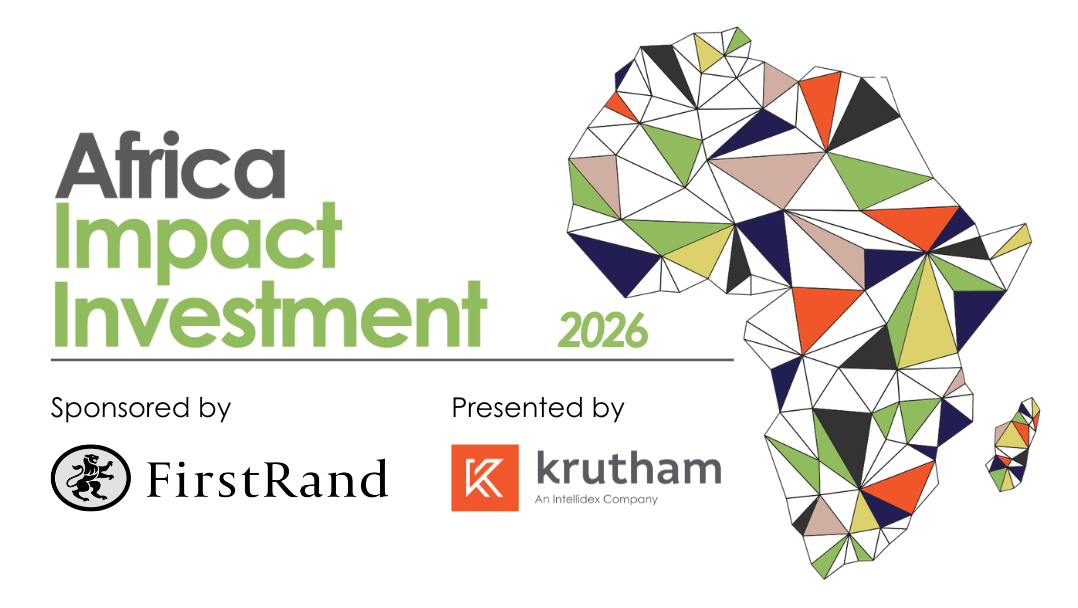These awards exist to provide recognition to any nominees that were either not shortlisted or did not win in their respective categories, but that are contributing materially to the development of the impact investing market through their impact investing intervention. Such awards can be made by the judging panel at its discretion.
60 Decibels
About
60 Decibels intermediates in the impact investing industry primarily through its innovative and tech-enabled impact measurement services.
They offer actionable, comparable social performance data to over 1,000 organisations, with the aim of facilitating a deeper understanding among investors about the social and environmental outcomes of their investments.
Through its Core Insights framework, 60 Decibels provides a standardised yet customisable approach to measuring impact across sectors, enabling impact investors to conduct a detailed assessment of the effectiveness of their investments.
In addition to its bespoke services for clients, 60 Decibels contributes to the development of broader impact investing ecosystem through its public-facing work. By making robust, aggregated data publicly available, 60 Decibels helps to elevate the standards and practices of impact investing, encouraging more informed, effective and strategic decisions across the value chain.
The problem
Social impact data forms the cornerstone of impact measurement and management, a critical enabler for successful impact investing. However, the measurement and management of impact data is complex and requires specialist expertise and appropriate methodologies and approaches to ensure the data is credible and risks of ‘impact washing’ are avoided. Industry reports and academic research have consistently highlighted the challenges of measuring and managing impact effectively, citing these as significant barriers to the growth and credibility of impact investing.
60 Decibels works to enhance the accuracy, comparability, and actionability of social impact data.
Scalability
The scalability of 60 Decibels’ model lies in its adaptability – a feature refined over time through experience across several markets.
As 60 Decibels expanded, the organisation encountered the complexities of scaling and responded to these challenges by refining its model to enable analysts to specialise in specific sectors and regions, enhancing insights and service quality.
Recognising the diverse needs of its clientele, it introduced a tiered pricing model, offering core insights that work for smaller entities with tighter budgets, while providing comprehensive portfolio level analysis suitable for larger organisations.
What makes 60 Decibels unique?
60 Decibels employs an innovative approach to impact data collection and analysis, which enables the assessment of both the breadth and depth of impact. Core components of the approach include:
Localised data collection: 60 Decibels utilises local researchers to gather primary data, ensuring authenticity and relevance.
Speed and scalability: Through its tech-enabled platform, 60 Decibels can deploy surveys and collect insights faster than traditional methods, providing timely data to investors.
Benchmarks and comparative insights: With deep benchmarks across multiple sectors gathered over nearly a decade, 60 Decibels allows investors to compare their impact over time and against peers, driving a competitive edge in social performance.
Customised yet standardised methodology: The Core Insights approach allows for both consistency in measurement across investments and the flexibility to tailor to the specific context of an investment, striking a balance that is hard to find elsewhere.
Addressing challenges
As a market intermediary, 60 Decibels faces numerous risks that could prevent it from achieving its intended social outcomes, or that could lead to unintended negative consequences. Key impact risks that the organisation actively mitigates include:
| 1
Data quality and integrity |
The accuracy of impact data is crucial. Poor data quality can lead to incorrect conclusions and decisions. | To address this, 60 Decibels employs stringent quality control measures, uses standardised questions vetted for different contexts, and trains local researchers extensively to ensure reliability and validity in data collection. |
| 2
Inadequate representation |
There is a risk that the voices captured in surveys may not fully represent the target population. | 60 Decibels mitigates this by employing a statistically significant and diverse sample size, ensuring inclusivity in language, gender, geography and socioeconomic status. |
| 3
Cultural contextualisation |
Without proper localisation, insights may not be culturally relevant or appropriate. | 60 Decibels counteracts this by engaging local researchers who understand the cultural nuances, which helps in framing questions
appropriately and interpreting answers correctly. |
| 4
Response bias |
Beneficiaries might provide answers they think researchers want to hear, rather than their true feelings. | To reduce this risk, 60 Decibels trains researchers in neutral questioning techniques and establishes trust with respondents to encourage honest feedback. |
| 5
Changes in external environment |
External events can affect the effectiveness of an intervention. |
60 Decibels stays adaptive by regularly updating its benchmarks and insights to reflect current realities, and by being responsive to new information and trends. |
|
6 Ethical concerns |
There is an inherent risk of breaching ethical considerations in impact measurement. |
60 Decibels upholds strict ethical standards in research, ensures informed consent, protects the privacy and confidentiality of data and employs non-intrusive data collection methods. The organisation never shares information about the respondent without their written consent. |
By actively managing these risks, 60 Decibels aims to ensure that its work reliably supports organisations in achieving genuine, sustainable impact and avoids unintended harm.
Click here to download the case study
Share
This research report was issued by Krutham South Africa Pty Ltd.
Krutham aims to deliver impartial and objective assessments of securities, companies or other subjects. This document is issued for information purposes only and is not an offer to purchase or sell investments or related financial instruments. Individuals should undertake their own analysis and/or seek professional advice based on their specific needs before purchasing or selling investments.
The information contained in this report is based on sources that Krutham believes to be reliable, but Krutham makes no representations or warranties regarding the completeness, accuracy or reliability of any information, facts, estimates, forecasts or opinions contained in this document. The information and opinions could change at any time without prior notice. Krutham is under no obligation to inform any recipient of this document of any such changes.
No part of this report should be considered as a credit rating or ratings product, nor as ratings advice.
Krutham does not provide ratings on any sovereign or corporate entity for any client.
Krutham, its directors, officers, staff, agents or associates shall have no liability for any loss or damage of any nature arising from the use of this document.
Disclosure
The opinions or recommendations contained in this report represent the true views of the analyst(s) responsible for preparing the report. The analyst’s remuneration is not affected by the opinions or recommendations contained in this report, although his/her remuneration may be affected by the overall quality of their research, feedback from clients and the financial performance of Krutham group entities.
Krutham staff may hold positions in financial instruments or derivatives thereof which are discussed in this document. Trades by staff are subject to Krutham’s code of conduct which can be obtained by emailing mail@krutham.com.
Krutham may have, or be seeking to have, a consulting or other professional relationship with the companies, sovereigns or individuals mentioned in this report. A copy of Krutham’s conflicts of interest policy is available on request by emailing mail@krutham.com. Relevant specific conflicts of interest will be listed here if they exist.
- Krutham provides independent advice and independent research to a wide range of investors and financial institutions on Eskom, Denel, Transnet, Land Bank and SAA. Krutham’s interactions with all clients on Eskom, Denel, Transnet, Land Bank and SAA may include business confidential information but does not include MNPI and so does not provide a conflict. Krutham does not ‘act’ or ‘advocate’ for or ‘represent’ any of these clients. Krutham has regular interactions with government, Eskom, Denel, Transnet, Land Bank, SAA and other related entities connected with the SOE situation but does not provide paid consulting services or paid advice to any of these entities. These interactions are governed by Krutham’s own conflicts of interest policy as well as secrecy rules of the respective institutions or state-owned companies.
- Krutham provides a range of services into ‘organised business’ groupings in South Africa, which includes independent bespoke research and advice. Krutham is compensated for these services. Krutham does not ‘act for’ or ‘advocate’ for or ‘represent’ any of these clients.
- Krutham is currently involved in policy design work on a number of government priorities.
Copyright © 2023. All rights reserved. This document is copyrighted to Krutham South Africa Pty Ltd.
This report is only intended for the direct recipient of this report from a Krutham group company employee and may not be distributed in any form without prior permission. Prior written permission must be obtained before using the content of this report in other forms including for media, commercial or non-commercial benefit.

